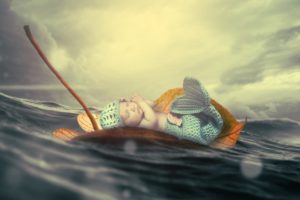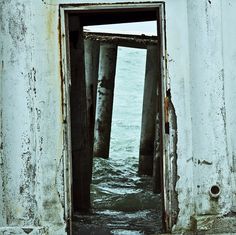You have no items in your cart. Want to get some nice things?
Go shopping I was five years old, swimming in tight circles around my Nonnie in the hot tub out back behind the old house in Fort Worth. She was visiting all the way from Slidell to see me, her first grandson. As the jets tickled my toes, I noticed something bobbing up and down amongst the bubbles attached to a gold chain that disappeared into the water just below her brunette hair. My hands reached out and plucked it from the froth.
I was five years old, swimming in tight circles around my Nonnie in the hot tub out back behind the old house in Fort Worth. She was visiting all the way from Slidell to see me, her first grandson. As the jets tickled my toes, I noticed something bobbing up and down amongst the bubbles attached to a gold chain that disappeared into the water just below her brunette hair. My hands reached out and plucked it from the froth.
“Nonnie, what’s this?” I asked. She took it from me, and rubbed it with her slender fingers, her nails always that same rusted shade of pink.
“This?” she asked. “This is my golden sand dollar.”
I had seen sand dollars before, but never a golden one.
“Do you want to know the story behind it?” she asked, the sliver of gold glinting in the summer sun. I nodded.
“Well… When I was just a young girl, I spent the summers like I always did. On the beach with my parents. One day, I went out by myself on a small boat we owned to try and catch some fish. But a storm grew overhead, and I was thrown from the boat! As I started to sink deeper and deeper into the ocean, I began to notice these pearlescent bubbles everywhere. There was flowing hair all around me in beautiful shades of red and green and blue. And right when I began to struggle to breathe, a pair of lips kissed me on the mouth! And I felt at peace. I could breathe, as long as their lips touched mine. Then a pair of strong hands swam me to shore. You know who it was?”
“Who?” I asked.
“The mermaids,” she told me. “Once we were on shore, they put in my hand this golden sand dollar and told me that from then on, I was one of them. And that not my children, but my children’s children would also be mermaids, like me.”
“You mean…?”
“That’s right. You’re just like me,” she said, finally releasing her grasp on the sand dollar and letting it fall beneath the surface of the water. “We’re mermaids, Alvin. We’re mermaids.”
*
The floor swayed as everyone boarded the old trawler boat. The sky was cloudless, the heat of the sun weighing down on the parts of the deck uncovered by the awning. My Nonnie was the first on board, her grey hair bouncing in all directions in curly ringlets. In her hands, she carried an urn, small and ghost white.
In my hands, I carried a cooler, filled to the brim with beer and ice. My mom told me to carry it for her from the car. Initially, I refused, complaining that an eighteen-year-old shouldn’t have to lug around alcohol he couldn’t even drink. But I obeyed. It wasn’t the kind of day to raise a fuss.
“Don’t you think it’s sorta in bad taste? You know, considering…” I said, trailing off, unable to say the words out loud.
“It’s what he would have wanted,” she said and started off towards the dock. My little sister Temperance and I shared a look, but I didn’t argue.
Once the rest of the family was on board, they scattered in packs to the far ends of the boat. Maybe because it wasn’t very large in size and everyone just needed some space to breathe. But, even then, I don’t think the Titanic would have been big enough to give everybody the space they needed for this particular voyage.
I stared out at the bay, trying not to let the swaying deck or the rank smell of fish get to me. In my hands, I was mindlessly crinkling a piece of paper that Nonnie had given me the night before. I had spent all night reading it, mulling over the words again and again until it was memorized. Until it was perfect.
*
“It’s a poem. I’d like you to read it tomorrow after I’m done giving the eulogy,” she said.
“Why me?”
“Because we are the only ones strong enough,” she said, the familiar fragrance of chardonnay on her breath. I nodded, but didn’t particularly agree. I sure as hell didn’t feel strong. But she placed her hand on my shoulder with those same rusted pink nails, her eyes looking out at the sunset colored beach from the deck of the condo. With her other hand, she brought a Marlboro Light to her lips and breathed in deeply, the tip gleaming orange in the haze of dusk.
“I’m glad you’re here, Alvin,” she said, the smoke trailing in thin wisps from her nostrils. “We mermaids always do better when we’re at the beach.”
*
The boat began to sputter away from the dock and Port Aransas grew small behind us. I noticed the one crew member lurking in the shadows, this hulking man with skin burnt to leather. This man of faded tattoos and no right hand, lost to a propeller many years ago, with only scar tissue where it used to be. All that and he was still scared shitless of stepping on our toes. The uncertainty of the open ocean was one thing, but grief… That was something else entirely.
The ocean was still as we cut through the water, the waves tenderly lapping against the sides of the boat. The seagulls had perhaps taken the day off, because the sky was void of any signs of life. The only sound I can recall is the stammer of the boat’s engine. Nobody said much of anything, except for the odd attempt at small talk.
“My stomach hurts,” Temperance said.
“I told you that you should have eaten more for breakfast this morning,” my mom said.
“Breakfast sucked,” Temperance replied.
“I don’t think I did that bad of a job,” Aunt Betty said, fanning her slender face with an old straw hat in an attempt to keep the sweating at bay.
“John David always made the best breakfast,” Temperance said. The mention of his name brought a silence over the crowd.
“Well—” Aunt Betty started, stumbling to find any words that would come to her aid.
“You’re fighting a losing battle, Aunt B,” my mom said, breaking through the quiet in the way that she always did. “You’re going against a fond memory on this one. And those are the hardest to compete with.”
In the distance, the silhouette of a lighthouse stretched into view against an endless blue horizon. I couldn’t recall ever seeing a lighthouse in person before that day. In the movies, they were always portrayed as these shining beacons of hope. But as the boat’s engine cutting off marked our arrival and the lighthouse stared down at our sad little affair, I couldn’t help but feel all sense of hope ebb from my pores.
“Thank you to everyone for coming out today,” Nonnie said, standing resolute as she waited for everyone to gather around her at the stern. She wore sunglasses, but I could still make out the redness of her eyes that only tears can bring, those dark circles that can only be born from unrelenting and sleepless nights.
“I just wanted to say a few words before we started,” she said, continuing to talk, her lips forming word after word, the sum of their parts adding up to a eulogy to honor the memory of her dead son. But I couldn’t pay attention, haunted by the image John David’s waxen face in the communal coffin, the one that all the bodies due to be cremated are viewed in before the whole ashes to ashes, dust to dust thing.
*
They had called it a wake, but the word just didn’t seem to apply. The room was stuffy and small, every inch of the walls covered in the lingering air of death. When I used think about the end of a life, I imagined a cathedral with ornate portraits of stained glass. But it wasn’t like that at all. Everything was wrong.
My uncle.
Mine.
Mine?
Dead at forty-two from a steady diet of alcohol and drugs, his body finally calling it quits after countless scares.
That couldn’t be my life.
That couldn’t be my uncle.
When my mom told me that he was in the hospital again, I didn’t go to visit him. There are only so many times you can visit someone in the hospital for the same exact thing before it just becomes redundant. And it’s so damn easy to think of alcoholism as something someone does rather than a disease someone lives with. The lines get blurred, blame gets placed, and everyone tries so hard to come out the winner when it was never a winning game to begin with.
John David called me two days before he died. He sounded so tired, like his soul was worn out, through and through. I can’t quite recall the words we spoke, just the feeling. I was tired too. Maybe not in the same way he was tired, organs failing and skin yellow with jaundice. No, I was tired from hearing my mom crying in her room, scared that every ring of the phone would be that call telling her that – ding dong – her brother has finally died and that she doesn’t have to worry anymore. Even more than that, I think I was tired of being disappointed by the people I was supposed to be looking up to.
“I love you, JD,” I said, the last words I would ever say to him. I wish I had put more into it. I wish I had meant it and hadn’t been so angry.
“I love you too, bud,” he said. Then I passed the phone off to Temperance like it was an inconvenience, more akin to a burden than a goodbye.
*
“Now, Alvin would like to recite a poem that I asked him to read for the occasion,” Nonnie said to the people gathered around her. As I shuffled to stand beside Nonnie with all the eyes now turned to me, I pressed my sunglasses back into place with my forefinger. Sunglasses mean they can’t see you cry. But you can always hear it in the voice.
I cleared my throat, the sound catching somewhere on the way down as I unfolded the paper in my fist.
I began.
“Death is nothing at all. It does not count. I have only slipped away into the next room. Nothing has happened. Everything remains exactly as it was. I am I, and you are you, and the old life that we lived so fondly together is untouched, unchanged. Whatever we were to each other, that we are still. Call me by the old familiar name. Speak of me in the easy way which you always used. Put no difference in your tone.”
Someone in the audience coughed, and I took a second to breathe.
“Wear no forced air of solemnity or sorrow. Laugh as we always laughed at the little jokes that we enjoyed together. Play, smile, think of me, pray for me. Let my name be ever the household word that it always was. Let it be spoken without an effort, without the ghost of a shadow upon it. Life means all that it ever meant. It is the same as it ever was. There is absolute and unbroken continuity. What is death but a negligible accident? Why should I be out of mind because I am out of sight? I am but waiting for you, for an interval, somewhere very near, just around the corner. All is well.”
My chest tightened as I fought the quivering of my jaw, my eyes stinging from the wind or the words, I couldn’t tell. I felt hollow yet on the cusp of something, as if everything in my life were on the crest of a wave, ready to curl and bow and break everything I knew into tiny, little pieces until nothing would ever be the same again.
My mom cracked open a Michelob ULTRA, breaking the silence. The air hissed from the can, and I felt sick. As I shuffled back in amongst the crowd, Nonnie caught my eye. She nodded her approval as I stuffed the piece of paper back into my pocket. I took a sharp breath as she returned her gaze to the water.
Everyone watched as Nonnie for the final time cradled the urn, holding any last semblance of what was left of her son in her arms. She gently rocked it, just as gently as she cradled John David when he was a baby. When he was small and the world hadn’t reduced him to dust. When he could look into his mother’s eyes, reach out his hands to touch her cheek, and let out little peals of laughter like fresh spring rain. When she couldn’t even fathom the depth of pain that outliving a child brings.
I bit my lip and tasted blood as Nonnie went to the ship’s edge and pried her fingers from the urn. It splashed into the water, the lighthouse watching down on us from the shore. I closed my eyes and felt as if my whole body was submerged as John David’s ashes sunk deep beneath the water, the bubbles scattering all around me in tranquil chaos. Pearlescent bubbles and the soft touch of beautiful hair in shades of red and green and blue. And just as he slipped out of sight, lost forever to the depths of an insatiable ocean, I opened my eyes.
There were no pearlescent bubbles.
No hair in shades of fantastic colors.
I was old enough to know that the mermaids weren’t coming to save him.
Nonnie made her way to my side and got close enough to whisper in my ear, her golden sand dollar still hanging from her neck and reflecting the sunlight into my eyes.
“Mermaids sing their songs at morning tide and evening time,” she said, clutching my shaking hand into hers. “But on the day that you were born, they sang their songs all day long.”

About Austin Allie
Austin Allie (he/him) resides in Austin, TX, with his black cat, Hex. He’s a writer, poet, playwright, singer-songwriter, and videographer. He’s a Featured Writer for Her Heart Poetry and has had poems and short stories published in Chaleur Magazine, The Offbeat, Feminist Inquiry, Shotgun Horror Clips, and Flatbush Review. His most recent written work can be seen in the poetry anthology, “Til Death,” scheduled for national publication later this year. Recently, he lost his sister to addiction and urges people to educate themselves, help overcome the stigma surrounding addiction, and be a part of stopping the devastation addiction causes families. Learn more and make donations at https://www.shatterproof.org/memorial/taylor-allie.
- Web |
- More Posts(1)





What a beautiful story. Thank you for sharing!
What a beautiful story!
Thanks for sharing ❤️